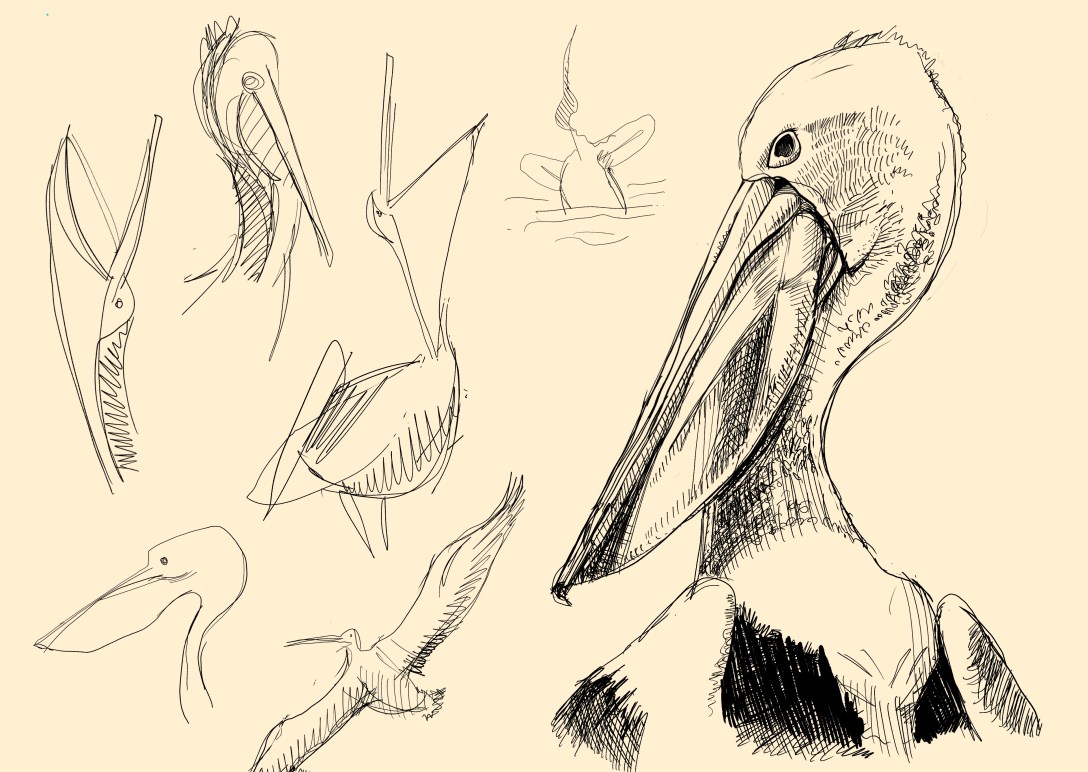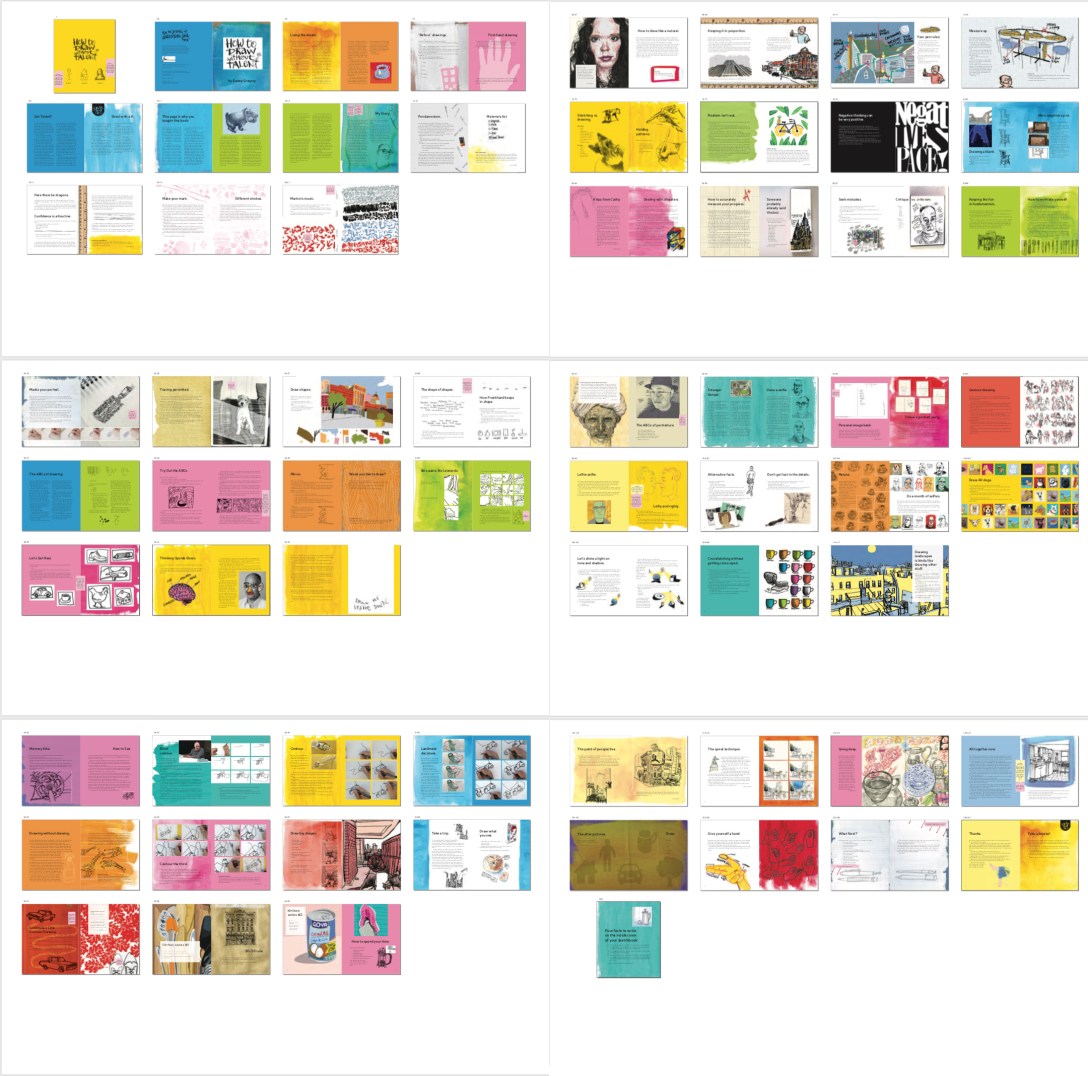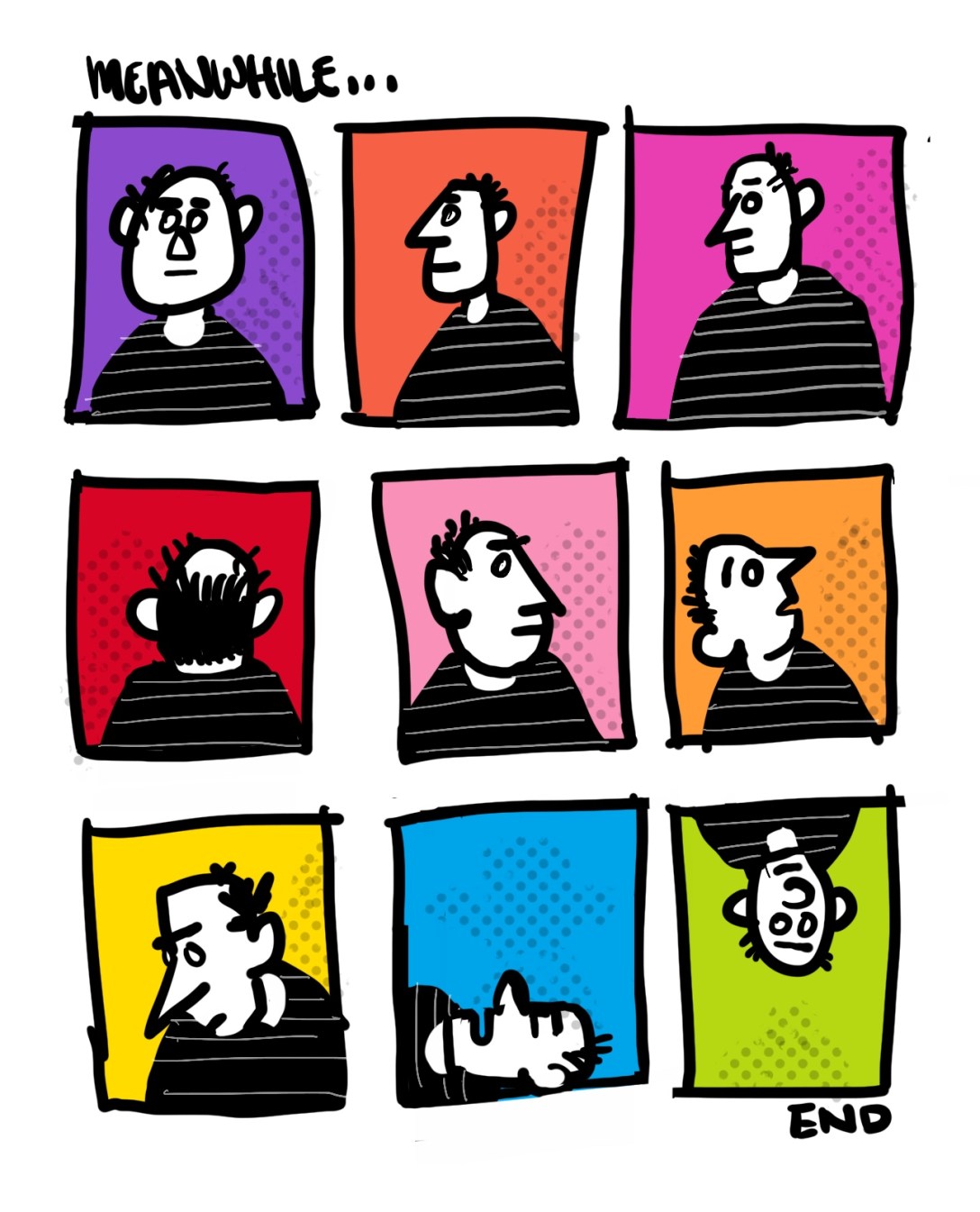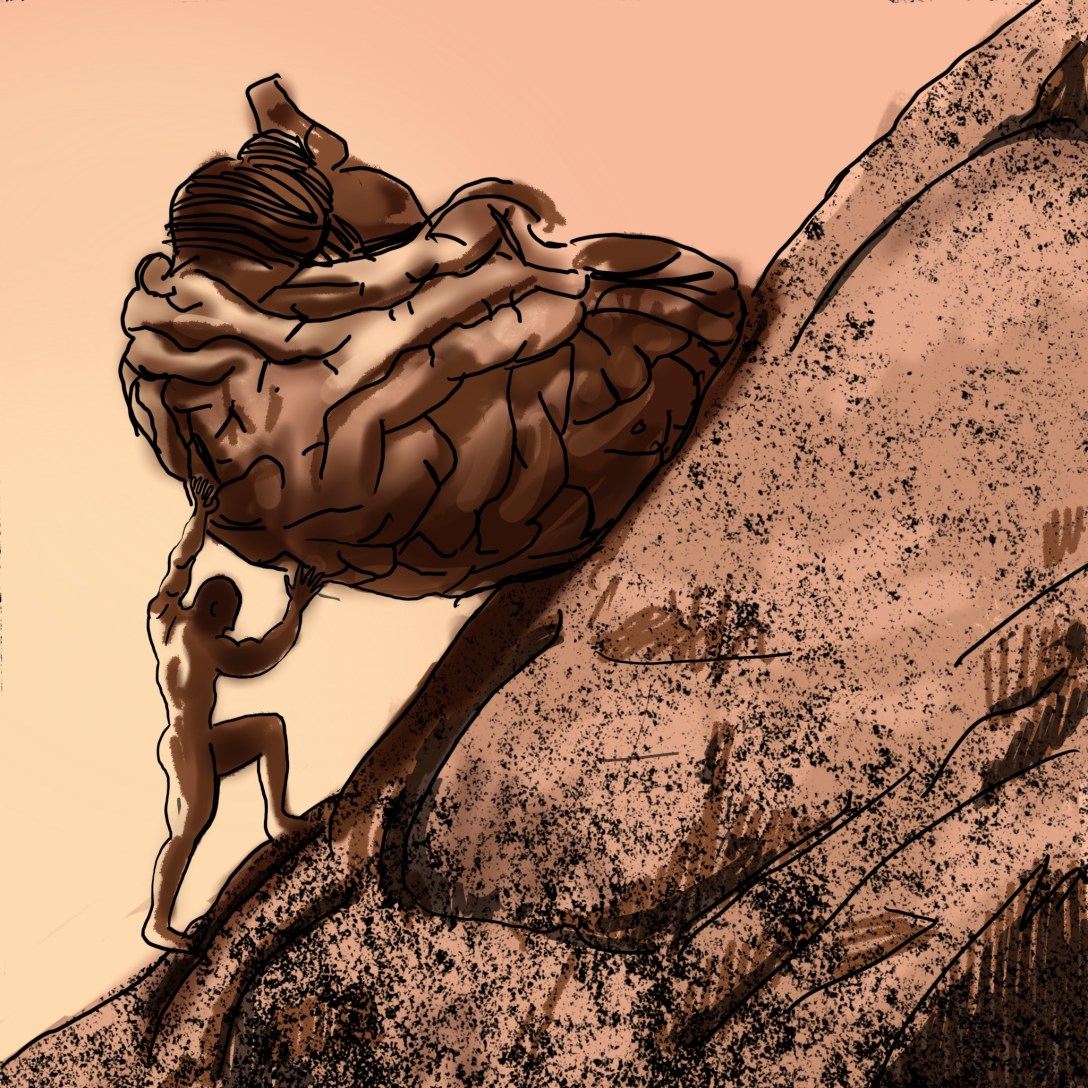In a recent email, Brad wrote,
“You mentioned once that there have been times in your life you haven’t sketched as much…some lengthy period of time going by without picking up your pen. Does this still happen to you, this lack of motivation to sketch? How do you get through it? Do you force yourself to pick up that pen, or do you let the period of time just play itself out and not worry about it?”
— Brad
Well, Brad, I haven’t shaken those infernal dips and yips yet.
Like recently — I have been so busy that I haven’t had an awful lot of time to draw for fun. Or to write more than my weekly essays.
What with the impending holiday season, I am also feeling a little paunchy and out of shape, so I’ve been going to a wonderful trainer. It took me a couple of months after the excesses of the summer to overcome my torpor, put down my beer glass and french fries, and drag my fat butt to the gym, but I finally did it, and immediately, I felt better. Now I know I am on the road to regular exercise again.
It’s the same with drawing. I get busy (ironically, telling other people to draw more), time dries up, and my sketchbook gathers dust.
I don’t press it too hard.
I think forcing yourself to draw when you really don’t want to is a mixed bag. Sometimes, it will jolt you out of the blues; sometimes, you will just come to associate your blues with the practice of drawing.
My main thought, Brad, is give yourself a break. Just set your sketchbook aside and feed your muse.
The key for me is to keep allowing myself always to be inspired. Not to beat myself up but to stay positive. To look at art, to stay engaged.
Try looking at others’ work in books and videos and on Instagram, and see if they inspire you. I am a big fan of a BBC series called “What artists do all day.” It’s available on YouTube and watching it often stirs my pot, as it were.
I know that one day soon, I will once again feel the itch to draw. And when I do, I’ll have that familiar flood of neural chemicals that make me feel relaxed and centered and in the world.
It just starts with one little drawing, one bump over the doorstep, one decision to put my gym clothes on rather than roll over and hit the snooze button. Even a dreadful drawing makes me feel better than a blank page.
We are grown-ups. We don’t need to beat ourselves up or let the monkey in our heads do it for us. Just remind yourself that it’s fun, then come up with an assignment for yourself.
Draw 100 dogs. Draw 30 faces in 30 days. Or 30 shoes. Or 30 crumpled sheets of paper. Draw every meal you have this month. Set your alarm 30 minutes early and paint the dawn.
And though this isn’t an ad, I have to tell you how helpful Sketchbook Skool is in keeping people inspired. Come to the Skool Yard. Sign up for Spark at Sketchbook Skool and take a few classes with Janis and Jason and me.
Whatever you decide to do, make it fun, suspend judgment, relax, and just think of it as dirtying some pages.
Soon, you’ll be back in the groove, making and happy again — I promise.










